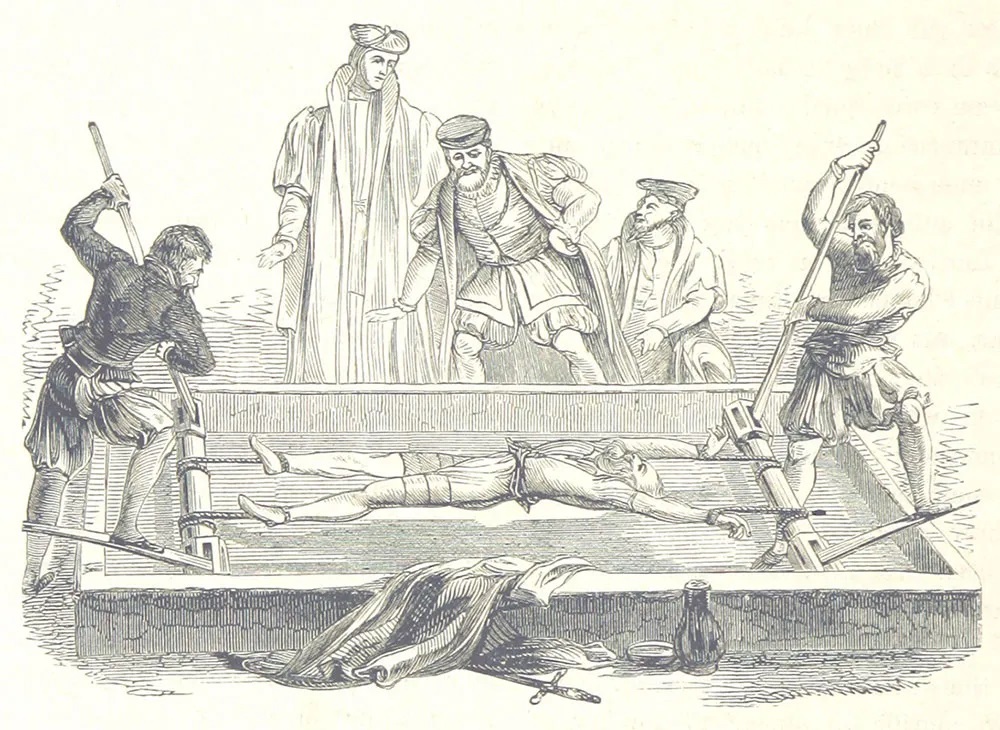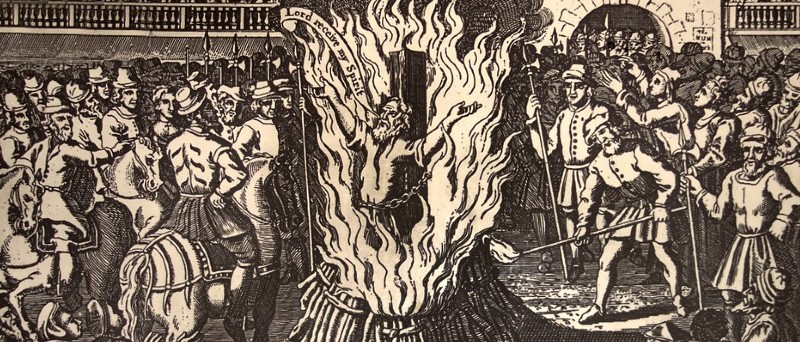Tudor Punishment: A Contemporary Account
Posted on 25th June 2021
Violent crime was rampant in the Tudor era and the punishment for it no less brutal. Justice was swift and imprisonment rarely an option. An offender could be fined but most punishments were physical in nature, branding, maiming, decapitation and death. Guilt was assumed and innocence had to be proved. Legal Counsel was rare and expensive and though the use of torture was illegal before guilt had been proved and sentence passed the ways to circumvent this were myriad. The Monarch’s wish however expressed, and a nod and a wink would often suffice.
Here William Harrison, who chronicled events throughout the reign of Queen Elizabeth I, provides us with his account of crime and the punishments they engendered.

For Treason:
The greatest and most grievous punishment used in England for such as offend against the state is drawing from the prison to the place of execution upon a hurdle, where they are hanged till they be half dead, and then taken down, and quartered alive; after that, their members and bowels are cut from their bodies, and thrown into a fire, provided near hand and within their own sight.
For Theft:
Rogues and vagabonds are often stocked and whipped; scolds are ducked upon ducking-stools in the water. Such felons as stand mute and speak not at their arraignment are pressed to death by huge weights laid upon a board that lieth over their breast, and a sharp stone under their backs, and these commonly hold their peace thereby to save their goods unto their wives and children which if they were condemned should be confiscated the prince. Thieves that are saved by their books and their clergy for the first offence, if they have stolen nothing else oxen, sheep, money or such like, which be no open robbery as by the highway or assailing of any man’s house in the night without putting him in fear of his life, or breaking up his walls or doors, are burned on the left hand upon the brawn of the thumb with a hot iron so that if they be apprehended against that mark betrayeth them to have been arraigned of felony before, whereby they are sure at that time to have no mercy.
Between Commoner and Nobility:
Sometimes if they trespass be not the more heinous, they are suffered to hang till they be quite dead. And whensoever any of the nobility are convicted of high treason by their peers, that is to say, equals (for an inquest of yeomen passeth not upon them, but only of the Lords and Parliament) this manner of their death into the loss of their heads only.
In trial cases concerning treason, felony, or any other grievous crime, not confessed, the party concerned doth yield if he be a noble man to be tried by an inquest of his peers, if a gentleman by a gentleman, an inferior by God, and by the country, to wit the yeomanry and , being condemned of felony, manslaughter etc he is hanged by the neck till he be dead, and then cut down and burned. But if he be convicted of wilful murder, done either upon pretended malice or in any notable robbery, he is either hanged alive in chains near the place where the act was committed (or, upon compassion taken, first strangled with a rope) and so continueth till his bones consume to nothing. When wilful manslaughter is perpetrated beside hanging, the offender hath his right hand commonly stricken off before or near unto the place where the act was done, after which he is led forth to the place of execution, and there put to death according to the law.
Neither was the act of Suicide looked upon sympathetically:
Such as kill themselves are buried in the field (in un-consecrated ground without the benefit of religion) with a stake driven through their bodies.
Tagged as: Fact File, Tudor & Stuart
Share this post:





